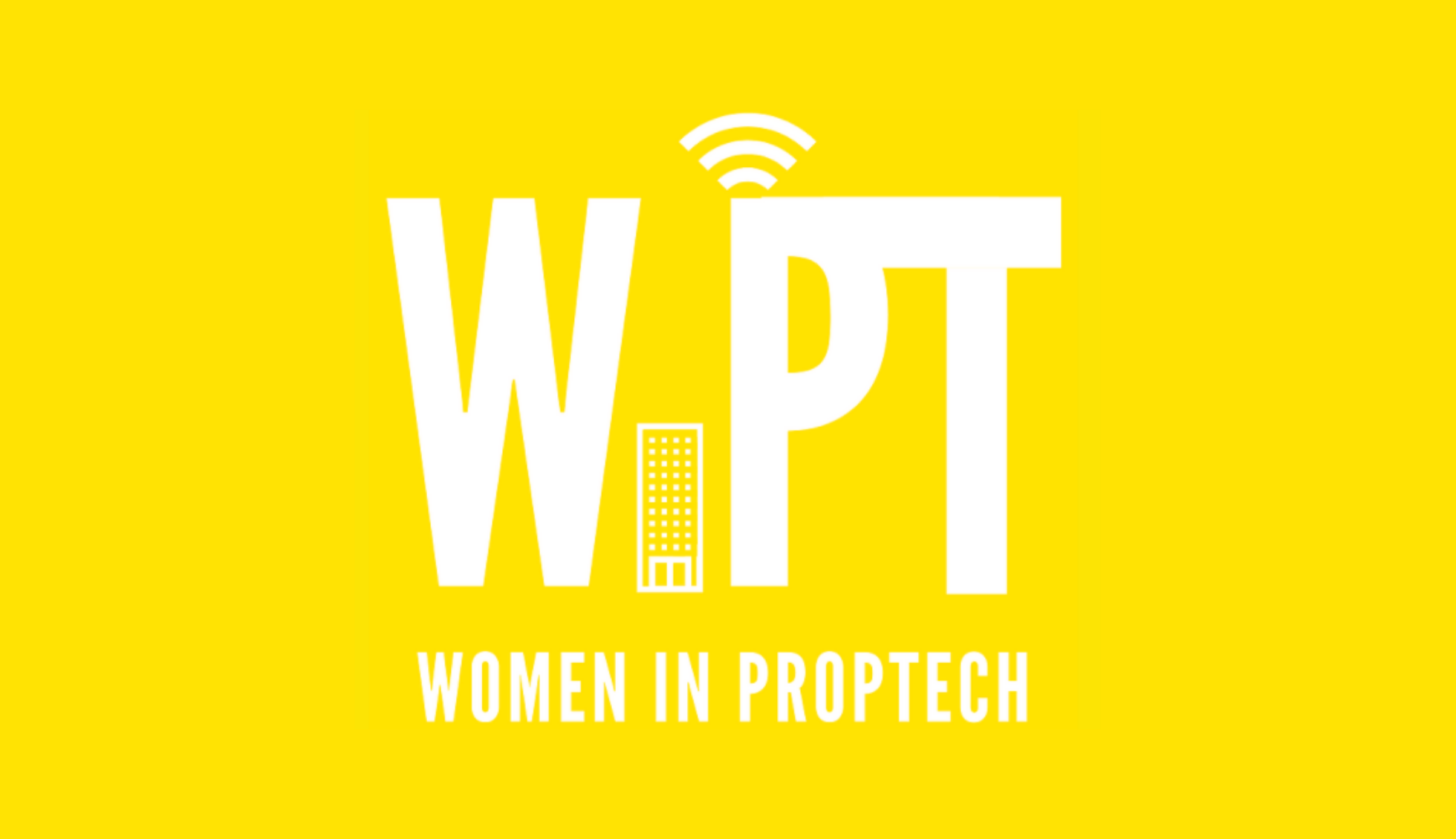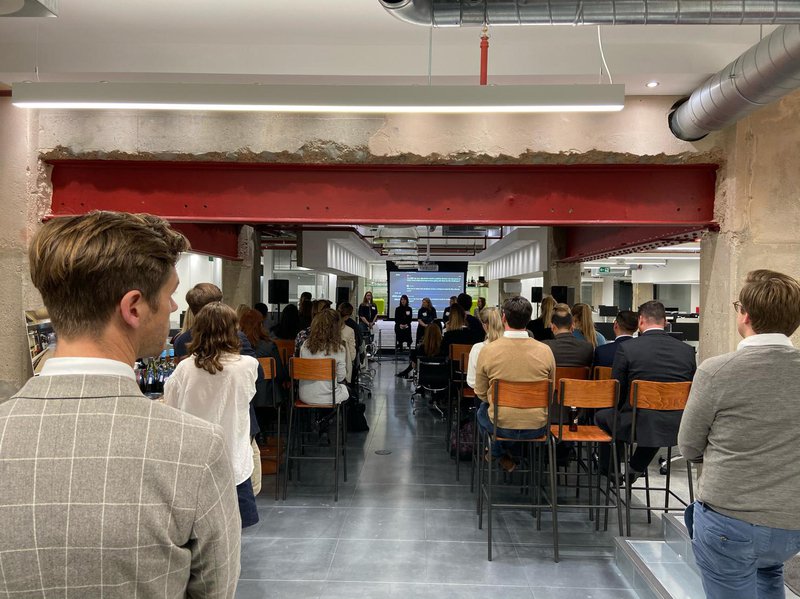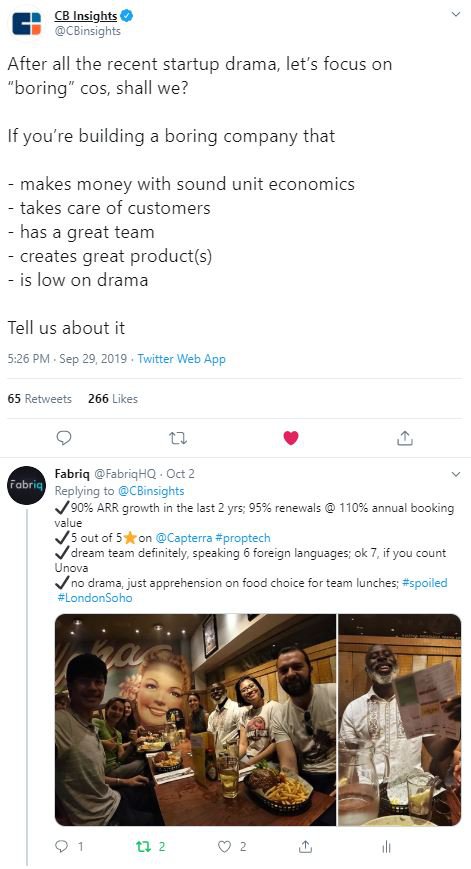
Last Tuesday (the 26th of Nov 2019), I was invited to be part of the panel on ‘Leveraging ProptTech to get to Net Zero’ at the first Women In PropTech (WiPT) London event alongside fearless leaders in the space Sally Jones, Julie Hogarth, Alison Webb and beautifully moderated by Sarah Ratcliff.

Sally Jones opened the session by sharing how British Land has chosen to have a top down approach to PropTech adoption, sharing their learnings on the journey. This was a great precursor to the panel conversation, as we all agreed that PropTech, by bringing transparency to the process, is an active way to drive sustainability and reach Net Zero. Otherwise, how are we going to manage and track progress for what we cannot monitor?
There have been lots of great questions and points that were mentioned on the night, and these are the ones which stand out for me:
1 – Proptech – Where to begin? Which solution to go for? And what if they might fold?
There is a hard reality to consider – big discrepancies between the long construction times required in the real estate and the short innovation sprints which are the ‘special sauce’ or the attraction in PropTech. There is no denying that reconciling these two important practices makes it harder to ensure that a ‘smart building’ stays smart (AND useful) until it gets occupied. But hard does not mean impossible. Having a sustainability strategy, integral to the business strategy, will lead to choosing the right proptech solution in place.
However, even that is not enough – there has to be the combination of strategy and mentality. Hence, I invite us all to move from fear to curiosity, to drop the ‘yes, but’ and embrace the ‘how about?. When we invite curiosity, there is business value to be unlocked AND, in our case, a world of good to be tapped into.
As for what if companies fold? News flash – this is part of life, both small and large companies can fail (has anyone seen Carillion coming or WeWork imploding?). What these examples show is the need for due diligence and risk management principles applied to PropTech partnering, not too dissimilar to how portfolio management looks at risk tolerance profiles when recommending an investment mix.

2 – The case for PropTech is hard to make
I recognise that identifying and evaluating clear returns can be tricky, but it does not mean we should not go for it.
Edison famously once said ‘I have not failed. I've just found 10,000 ways that won't work.’
While the case for the ‘green premium’ is hard to prove, I think the existence of the ‘brown discount’ is undeniable.
Let’s stop chasing case studies for the ‘why’ and think about writing our own use cases for the ‘why not’. The risk of not playing the game is greater than waiting for all the rules to be clearly laid out; we’ve got a climate crisis and time is ticking… As per the song, ‘a little less conversation a little more action, please’ (not that climate change uses a lot of bandwidth).
3 – And when one decides to go for it, it often feels there is not the right level of support in place to help.
It takes honest conversations between client partners and PropTech providers about what success looks like: for some it may be the straightforward model of PropTech providers and data platforms, for others it may well work the bundled solution of services wrapped around the tech. It depends on the organisational skill set and its maturity in terms of tech adoption. Personally, I trust that the unbundled solution will prevail with service partners and data platforms coming together and strengthening their core capabilities through strategic partnering. I have been lucky enough to experience market adoption of nascent solutions in sectors like MarTech and FinTech. In the long run (which is what counts), the focus on specialisation with an open collaboration approach always wins. (More on this here).

4 – If PropTech is the answer, what was the question? (to paraphrase the architect Cedric Price’s famous quote)
PropTech can do a lot and, also, achieve nothing if it doesn’t address the needs of the majority of stakeholders (end users) in real estate. It needs to be aligned to strategy and championed throughout the organisation so one does not end up with multiple systems doing similar tasks in silos. Best practice indicates that when your team is considering a new solution, it is best to check with the wider organisation if there is nothing else in existence; and if it is, then you have something to benchmark against and an opportunity to have cross-department collaboration.
PropTech can help deliver net zero in this context, namely in two ways:
- Help optimise workflows, processes and resource management in each individual sector
- Optimise across sectors, which can be achieved through inter-operability incl. APIs (technology layer) as well as solutions that provide frameworks across sectors themselves, e.g. collaboration type software and cross-sector data management.
In all of the above, it is important not to leave the human factor out of the picture! The best solutions are worth nothing if the right training, workflows, incentives and conflict management are not provided.
5 – Finally, what is the latest tech that excites us?
A number of mentions have been made here, but let’s all consider the scope for ‘boring’ business as described by CB Insights tweet below:

Instead of chasing the next ‘shiny shiny’, hopefully we can remain focused and stop chasing balloons. Net zero is only possible if people collaborate across the entire “building journey”, from concept to design, siting/location, development, construction, commissioning, operation, tenant engagement and finally, decommissioning and recycling.
One thought to ponder though are the new emerging business models i.e 'X'aaS (see Light As a Service from Philips or even Ink as a Service from HP) which offer access to products and services on a 'as a service' basis. Maybe just maybe the unintended consequence of PropTech will help us move from the only growth model we know e.g. consumption-based to a more sustainable, needs-based one and thus help us achieve net zero.
Net Zero is a real opportunity for the entire sector to come together. If we truly approach this as a collaborative exercise (not just lip service) and not with a winner-take-all approach (which is harder to do in practice than theory), then it can go a very long way.

Thoughts? Please post here
Thank you Dan Jestico and Iceni Projects for welcoming us to a very sustainable venue; also a special shout out to
Paul McCorquodale and Tom Schalenbourg for sharing their views on the topic prior to the event - I really appreciate it, it takes a village to grow a sector.
Photo credits to Lucinda Lay and Nikki Greenberg.

